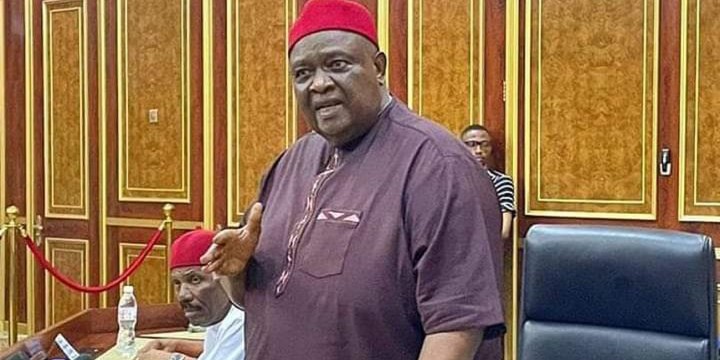Without fear of any contradiction, the Revenue Mobilization Allocation and Fiscal Commission (RMAFC), yesterday, linked Nigeria’s poor economic performance to high cost of governance. Specifically, the Commission identified expensive presidential system, a bloated bureaucracy with overlapping ministries, and widespread corruption as the root causes.
The Chairman, RMAFC, Mohammed Shehu, in a statement on Sunday, was quoted as saying that “No society can make meaningful progress unless it develops a competent and cost-effective management system capable of maximizing the nation’s resources to the benefit of all.”
He added that “The problem of cost of governance is responsible for the reduction in the provision of infrastructure and social services and the consequent fall in investment, high level unemployment and rising insecurity in the country.”
Mr. Shehu also listed inefficient public service delivery due to poor infrastructure; high security costs arising from insurgencies, kidnappings, and other security threats; excessive pay-outs in salaries, severance packages, and allowances; extravagant spending by government officials; high domestic and foreign debts and weak enforcement institutions, as other contributory factors.
Against this backdrop, he said RMAFC has over the years advocated a reduction in cost of governance to preserve scarce resources for Nigeria’s sustainable development.
It had also proffered far-reaching suggestions and recommendations to governments at all levels on the need to scale down unnecessary expenditure and to monitor expenses on developmental projects that would impact positively on Nigerians.
He therefore called on the federal and state governments to use the increased allocations from the Federation Accounts Allocation Committee (FAAC) wisely, saying: “These additional funds should be used to provide adequate support to the Nigerian people, particularly those struggling with the effects of subsidy removal.”
Economic reforms
Commenting on recent reforms, Mr. Shehu urged the government to strengthen cooperation between the monetary and fiscal authorities, adding that with the full implementation of the Oronsaye Report and ongoing structural reforms, Nigeria can achieve a more stable exchange rate, control inflation, and create a more business-friendly environment for all.
“The country can be assured that through the coordination of policies and the current structural reforms, implementing Oronsanye’s report will bring a more stable exchange rate, control inflation, reduce the cost of governance, and create an enabling environment for businesses and individuals to thrive,” he said.
On maintaining stable prices and exchange rates, which he said is essential for sustainable economic growth and protecting Nigerians’ livelihoods, he added that these policies will help curb inflation’s damaging effects.
“The RMAFC sees price stability and exchange rate stability as good policies in the right direction. The price stability preserves the purchasing power of the national currency, provides confidence to the investors, and assists the citizenry to plan their spending and savings more effectively,” he said.
The RMAFC Chairman further called for a stable exchange rate that would foster investor confidence and minimise uncertainties in the foreign exchange market. “This, in turn, attracts foreign investment, improves financial inclusion, and creates a more predictable environment for businesses,” he said.
He also welcomed the ongoing reforms in the Bureau De Change (BDC) market, saying: “These reforms aim to establish transparent operations in line with international best practices. This will increase trust among businesses, regulators, and the public. A well-organized BDC market with clear procedures plays a crucial role in maintaining a credible foreign exchange system.
“When stakeholders have access to accurate information about market conditions, it can lead to more stable exchange rates, reducing volatility and providing a more predictable environment for businesses and investors.”





